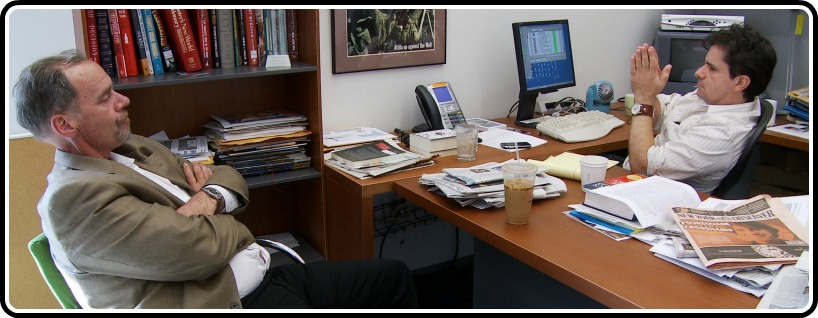The newspaper business has seen better days.
Over the past decade, with the rise of internet news, social networking and other outlets, the world of print journalism has been on a strict and exponential decline. That is the thesis at the core of the latest film from director Andrew Rossi, entitled Page One: A Year Inside The New York Times.
Looking at that very thing, a year inside the New York Times, Page One follows those inside the New York Times newsroom, during a year where Rossi was able to gain a historic level of access to both the newsroom, as well as those who make it up. Featuring interviews with the likes of David Carr (who the film for a lack of better words focuses on), Page One is an interesting, if horribly scatterbrained look at a group of people on the precipus of both extinction and expansion thanks to the world wide web.
The star of this documentary is really the access itself. Taking a real look at both the Times as a whole, and the creation of the Media Desk, the film has a historic level of access to the desk, and those who make it up. Names like Carr, who the film primarily focuses on, are the proxies through which this film asks its cavalcade of questions.
It is these questions that ultimately both hold the film’s head above water, while also keeping its head firmly under it.
Ultimately, the film’s major sin is that it doesn’t quite know what it wants to discuss. Looking at such things as the onslaught of news aggregators like Gawker, as well as a brief, albeit really funny, portion dedicated to the rise of social networking, the film as a whole works as something other than a truly informative documentary, but ultimately fails to say anything extremely compelling.
David Carr is truly the reason to get in front of a screen, and check this film out. Carr, in his own esoteric and sarcastic way, says some of the most inherently interesting things about media, culture, and the combination of the two on the web. We also meet names like Bruce Headlam, Bill Keller, Tim Arango, and Brian Stelter, the latter giving the other truly compelling narrative. These are names that have gone from straight forward, classic newspaper journalism, and have made the move into the current world of journalism, all while paring these stories with discussions on WikiLeaks, The Huffington Post, and technology as a whole. All of these stories are ultimately engaging and wholly watchable (particularly to the sly humor injected by both Rossi and the subjects he shoots), but also don’t make Page One the most coherent of documentaries.
Overall, for those not subject to the world of journalism, this may be the revelatory documentary that it seems to set out to be. It ultimately tells a collection of interesting narratives, both based around people and topics, that when weaved together, don’t allow for the correct amount of explanation or breathing room for the stories to truly sink in, or the concepts to steep. Also, if you’ve ever dabbled in writing or taken a class on media and its growth in today’s technological landscape, this ultimately won’t speak too deeply to you. Featuring a great sense of humor, the combination of sarcastic laughs and some really interesting discussions on a wide variety of topics, Page One may be a scatterbrained look at a year inside the New York Times, but it’s also one that is more than a worthwhile watch, particularly when looking at the historic level of access that director Andrew Rossi had been given.
Flawed but absolutely engaging, Page One: A Year Inside The New York Times is a wonderful, if not massively insightful, documentary on the current state of the grey lady. An absolute must see, this is one that you can’t risk not checking out.



